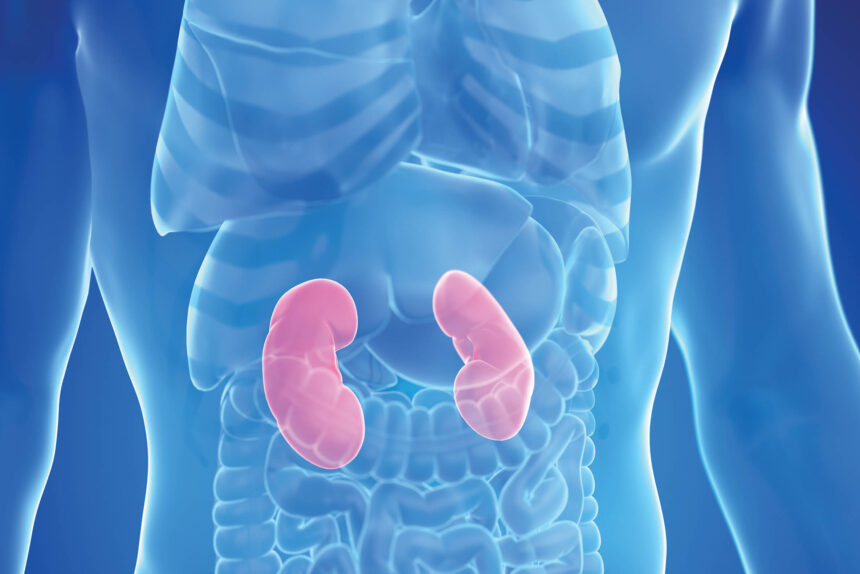In the dark recesses of our body, a silent but deadly battle may be unfolding. Your kidneys, vital organs that tirelessly filter and cleanse your blood, might be crying out for help through subtle signals, often drowned out by the noise of daily life. Ignoring these signals can be a grave mistake, leading down a path towards irreversible damage, chronic kidney disease, or even a life-threatening crisis. Kidney issues are nefarious, often masquerading as innocuous symptoms, making them easy to dismiss and perilously easy to overlook.
As you read on, we will unveil 10 sinister signs of kidney distress that demand your immediate attention. Among these, the fourth sign stands out as particularly crucial – a dark harbinger that, if heeded, could very well save your life. These symptoms are the quiet whispers of your body alerting you to potential danger lurking within. They are not to be taken lightly, as they hold the key to preserving not only the health of your kidneys but your overall well-being.
In this dive into kidney health, we will explore the menacing signs of kidney disease. Each symptom is a piece of a puzzle that, when ignored, can complete a picture of severe health deterioration. Remember, your kidneys may be resilient, but they are not invincible. Stay vigilant, stay informed, and never underestimate the silent warnings your body gives you.
1. Changes in Urination
- Symptoms: Variations in the frequency, urgency, appearance, or pain during urination.
- Why Concerning: These changes can indicate a malfunction in the kidneys’ filtering process.
2. Swelling in Legs, Ankles, or Feet
- Symptoms: Unexplained swelling, a sign of fluid retention due to failing kidneys.
- Why Concerning: Suggests that the kidneys are not effectively removing excess fluids from the body.
3. Persistent Fatigue
- Symptoms: Ongoing tiredness, difficulty concentrating, or feeling weak.
- Why Concerning: Healthy kidneys produce erythropoietin, a hormone that stimulates red blood cell production. Impaired kidneys can lead to anemia, causing fatigue.
4. Severe Back Pain
- Symptoms: Intense pain below the rib cage on one side of the back. The pain can be sharp or a dull ache.
- Why Concerning: This could indicate a kidney infection or kidney stones, requiring immediate medical attention. Timely treatment is crucial to prevent kidney damage or the spread of infection.
5. High Blood Pressure
- Symptoms: Often asymptomatic and only detected through blood pressure tests.
- Why Concerning: Kidneys help regulate blood pressure, and hypertension can be both a cause and a symptom of kidney damage.
6. Puffiness Around Eyes
- Symptoms: Excessive puffiness around the eyes, especially in the morning.
- Why Concerning: May indicate protein leakage into the urine, a sign of kidney dysfunction.
7. Dry and Itchy Skin
- Symptoms: Persistent itchiness and dry skin.
- Why Concerning: Can be a sign of mineral and bone disease commonly associated with advanced kidney disease, indicating an imbalance of minerals and nutrients.
8. Muscle Cramping
- Symptoms: Frequent muscle cramps and spasms.
- Why Concerning: Electrolyte imbalances, such as low calcium or uncontrolled phosphorus, can cause cramping, signaling deteriorating kidney function.
9. Bad Breath and Metallic Taste
- Symptoms: Persistent bad breath and a metallic taste in the mouth.
- Why Concerning: Indicates a buildup of toxins in the blood due to reduced kidney function.
10. Shortness of Breath
- Symptoms: Difficulty breathing or shortness of breath.
- Why Concerning: Can result from fluid buildup in the lungs or anemia, both linked to kidney issues.
The Criticality of Addressing Kidney Issues: Expert Insight
Nephrologists agree on the importance of not ignoring kidney problems. The kidneys play a critical role in maintaining overall health. Neglecting early signs of kidney dysfunction can lead to severe outcomes, including the need for dialysis or transplantation. Early detection and management are key to preserving kidney health and preventing further damage.
Kidneys perform vital functions, including waste excretion, blood pressure regulation, and red blood cell production. Delay in addressing kidney problems can lead to irreversible damage and severe health implications. Regular check-ups, especially for those at risk (like individuals with diabetes or hypertension), are essential.
In conclusion, being aware of these kidney danger signs is crucial. Prompt medical consultation and intervention can make a significant difference in managing kidney health and preventing grave consequences. Paying attention to your body’s signals and maintaining regular health check-ups are vital steps in safeguarding your kidneys and overall health. Remember, your kidneys are indispensable, and their well-being is integral to your body’s harmony and function.
Conclusion
In the complex and often mysterious workings of our bodies, the kidneys stand as silent guardians, crucial yet often unnoticed until something goes wrong. This journey through the 10 ominous signs of kidney distress serves as a crucial reminder of the fragility and importance of our kidney health. From subtle changes in urination patterns to the alarming pain signaling a possible kidney infection or stones, each sign is a critical piece of the larger health puzzle.
The sobering reality is that kidney diseases are stealthy attackers, often advancing quietly before their presence is felt. Thus, recognizing these danger signs is not just prudent—it’s potentially lifesaving. The fourth sign, in particular, stands as a stark warning, a beacon urging us to pay heed to our body’s subtle distress signals.
Ignoring these symptoms is akin to walking a tightrope without a safety net. The consequences can be severe, leading to irreversible damage, a life shackled to dialysis, or in extreme cases, a fight for survival. Early detection and intervention, however, can dramatically alter this trajectory. Simple lifestyle changes, regular medical check-ups, and keeping an eye out for these warning signs can go a long way in preserving kidney function and overall health.
As we conclude, let this be a clarion call to prioritize your kidney health. Listen to your body’s whispers before they turn into screams. Embrace a lifestyle that supports kidney health—hydrate adequately, eat a balanced diet, exercise regularly, and avoid toxins. And most importantly, if you notice any of these warning signs, seek medical attention immediately. Your kidneys, those unsung heroes in the shadows, deserve your utmost care. Remember, in the realm of health, awareness is not just power—it’s protection.








